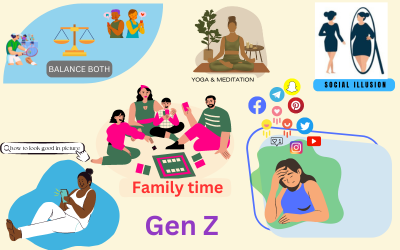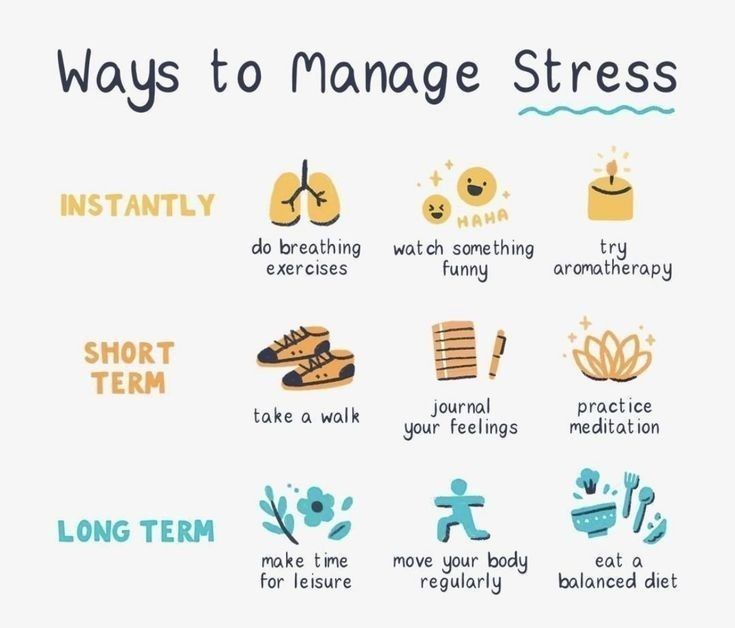
Introduction
Generation Z, born roughly between the mid-1990s and early 2010s, faces a unique set of challenges in the modern world. One alarming trend that has emerged is the increase in mental health problems among Gen Z individuals. This article delves into the factors contributing to this phenomenon and offers actionable strategies to overcome these mental health issues.
I. The Digital Age and Its Impact:
The ubiquity of technology in the lives of Gen Z has reshaped their social interactions, education, and sense of self. The constant exposure to social media, cyberbullying, and the pressure to maintain a curated online persona can lead to feelings of inadequacy, loneliness, and anxiety.
II. Academic Pressure:
Generation Z often faces intense academic competition, with an emphasis on standardized testing and achieving high grades. This pressure can lead to high levels of stress, burnout, and feelings of inadequacy, which in turn can contribute to mental health struggles.
III. Economic Uncertainty:
Many members of Generation Z are entering adulthood in a world marked by economic instability. Student loan debt, a competitive job market, and rising living costs can lead to financial stress and anxiety about the future.
IV. Social Isolation and Loneliness:
Despite being digitally connected, Gen Z often experiences feelings of social isolation. The rise of online interactions can sometimes replace meaningful face-to-face connections, leading to a sense of detachment and loneliness.
V. Coping Mechanisms and Substance Abuse:
To cope with these stressors, some Gen Z individuals turn to unhealthy coping mechanisms, such as excessive use of social media, substance abuse, or other addictive behaviors. These can exacerbate mental health issues and lead to a cycle of dependency.
Strategies to Overcome Mental Health Problems:
I. Encouraging Open Conversations:
Promoting a culture of open communication around mental health is crucial. Schools, families, and communities should create safe spaces where Gen Z individuals feel comfortable discussing their feelings without fear of judgment or stigma.
II. Building Resilience and Coping Skills:
Empowering Gen Z with effective coping mechanisms and resilience-building skills is essential. This can include mindfulness practices, emotional regulation techniques, and stress management strategies.
III. Fostering Healthy Relationships:
Encouraging meaningful face-to-face interactions and nurturing authentic relationships can help combat feelings of isolation. Building a strong support network can provide a sense of belonging and emotional well-being.
IV. Promoting a Balanced Digital Lifestyle:
Educating Gen Z about the importance of a balanced approach to technology is crucial. Encourage time away from screens, promote outdoor activities, and emphasize the value of real-world experiences.

V. Providing Access to Mental Health Resources:
Ensuring that Gen Z has easy access to mental health resources and professional help is paramount. This includes school counseling services, community mental health clinics, and online platforms offering mental health support.
VI. Destigmatizing Mental Health:
Combatting the stigma surrounding mental health is crucial in creating a supportive environment for Gen Z. Education and awareness campaigns can help dispel myths and misconceptions, encouraging individuals to seek help when needed.
VII. Encouraging Physical Well-being:
Promoting regular exercise, a balanced diet, and sufficient sleep is vital for overall mental health. Physical health and mental well-being are interconnected, and establishing healthy lifestyle habits can significantly improve Gen Z’s mental resilience.
VIII. Addressing Academic Pressures:
Educational institutions can implement strategies to alleviate academic pressure. This may include promoting holistic learning experiences, providing counseling services, and emphasizing the importance of personal growth over strict academic achievements.
IX. Nurturing Creative Outlets:
Encouraging creative expression through arts, music, writing, or other hobbies can be a powerful way to channel emotions and reduce stress. These outlets provide a constructive means for Gen Z to process their feelings and find a sense of fulfillment.
X. Teaching Emotional Intelligence:
Education on emotional intelligence, including recognizing and managing emotions, can empower Gen Z to navigate interpersonal relationships and handle stressors more effectively. These skills are invaluable in maintaining mental well-being.
XI. Mindful Use of Social Media:
Guiding Gen Z on how to use social media mindfully is crucial. This includes promoting healthy online boundaries, digital detoxes, and critical thinking about the content they consume. It’s essential to emphasize that real-life experiences hold greater value than virtual validation.
XII. Encouraging Goal Setting and Future Planning:
Empowering Gen Z to set realistic goals and plan for their future can instill a sense of purpose and direction. This proactive approach helps combat feelings of uncertainty and provides a positive focus for their energy.
XIII. Seeking Professional Help When Needed:
It’s crucial to emphasize that seeking help from mental health professionals is a sign of strength, not weakness. Gen Z should be aware of the availability of therapists, counselors, and support groups, and encouraged to reach out when facing significant challenges.
XIV. Engaging in Community Service and Volunteer Work:
Participating in community service fosters a sense of purpose and belonging. Engaging in acts of kindness and giving back can boost self-esteem and provide a broader perspective, reducing feelings of isolation.
XV. Promoting Self-compassion and Self-care:
Encouraging Gen Z to practice self-compassion and self-care is essential. This includes acknowledging their own worth, being kind to themselves, and prioritizing activities that bring joy and relaxation.
Conclusion
While Generation Z faces a unique set of challenges, there are actionable steps that can be taken to address and overcome the mental health issues they may encounter. By fostering open conversations, providing coping mechanisms, and creating supportive communities, we can empower Gen Z to navigate the complexities of the modern world with resilience and well-being. Together, we can work towards a future where mental health is prioritized and stigma is eradicated.
Leave a Reply